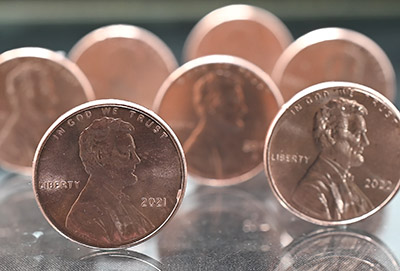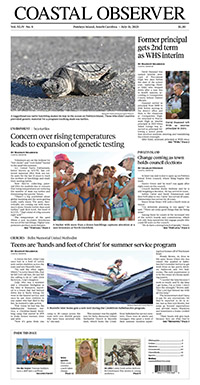Sales tax
Collections begin on extra penny to fund capital projects

The sales tax on purchases made in Georgetown County rose 16.7 percent today. And it will stay that way until 2033 unless voters decide to raise it again.
That won’t come as a surprise to the 17,584 county residents who voted for the capital project sales tax in November, or to the 16,830 residents who voted against it.
The local tax is 1 cent that will be collected in addition to the 6 cent state sales tax. It is estimated to raise about $10 million a year, which will fund 22 infrastructure projects around the county estimated to cost $74.4 million. If the tax raises additional revenue, the referendum listed 19 contingency projects for funding.
The penny won’t be included in sales of groceries, prescription medicine and motor vehicle fuel, which are exempt from the state sales tax. It will be added to the cost of short-term rentals.
“We had some calls in November from accommodations providers,” said Beth Stedman, CEO of the Georgetown County Chamber of Commerce. “They invoice their summer customers in advance. That was the group that was most concerned.”
She hasn’t had any calls from merchants about the tax.
The state Department of Revenue sent out notices in March to businesses that collect sales tax letting them know about the May 1 change.
“Businesses that do not collect the tax from customers are still required to report the tax on their monthly return and remit the tax,” said Tim Smith, a spokesman for the department.
The money collected by the state in May should be received by the county in July, said Walt Ackerman, the county director of Administrative Services. In recent years, a penny of sales tax has generated just under $1 million, according to Revenue Department data.
Revenue from the peak summer months should arrive in October, Ackerman said.
The county is requiring other agencies who will received a portion of the sales tax for projects to sign a funding agreement that specifies how much money they will get and how it will be used. That was adopted after a similar tax collected from 2015 to 2019 resulted in a lawsuit from the town of Andrews saying it was entitled to additional revenue.
A Circuit Court judge ruled against the town in March, but the final order in the case has yet to be filed. The town said it may appeal.
Some project sponsors, including the town of Pawleys Island, have already signed the agreements.
The first project due for funding is the Browns Ferry Water District, which will get $3 million to upgrade water lines for about half of its 1,200 customers in a rural area of the county.
Keith Moore, the district executive director, said this week that he hadn’t heard about the funding agreement.
“I haven’t heard anything from anybody since the referendum passed,” he said.
The district started work on improvements last year using a federal grant, but rising costs forced it to scale back on the scope of the work.
“We’ve almost completed with the work that we started,” Moore said. “Finishing the plan for complete fire protection is what I’m really excited about.”
Having projects like that completed or in progress will help if Georgetown County follows through with plans to put a local option sales tax on the ballot in 2026.
“We hope to be able to show your tax dollars are working,” Ackerman said. He led the county’s effort to explain both taxes to voters last year. The local option tax lost by 54 votes out of 35,188 cast.
The local option tax requires the county to use 71 percent of the revenue to reduce property taxes. The balance can be used by the county and municipalities for operations.
“People started asking at the end of last year about LOST tax relief,” Ackerman said, referring to the tax by its acronym. “They thought it was going to be a done deal.”
Stedman was part of the committee that campaigned for passage of both sales taxes. They were surprised that the local option failed since it offered an immediate benefit.
“After the election there was some discussion about putting it back on the ballot as soon as possible,” she said.
County Council identified that as a goal at its annual retreat this year. Stedman thinks the local option tax will fare better on its own.
“Being able to focus on a single tax will be a help,” she said.




